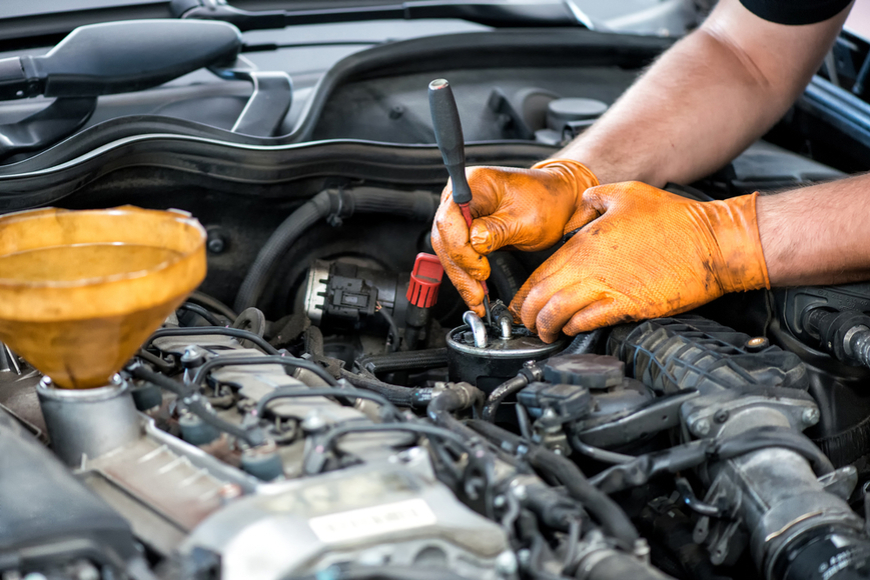- April 17, 2015
- By Strand Media
- In Engine, Oils
- Tags Diagnostics, Suspension
- 2621
- 0

When I was a child, I remember my Dad telling me: “When a vehicle has 100,000 miles (160,000km) on her, trade her off because she has reached the end of her life!”. I am not sure why he always referred to his vehicles in the feminine form; but for my Dad, the truck was always a “she”. I look back on his comment now with amusement because I don’t even consider a vehicle to be “used” until it has at least 300,000 km on it and occasionally see vehicles with 500,000 km on the odometer. Better manufacturing, better materials, better roads, and especially better oils have resulted in vehicles lasting longer than ever before.
When my customers come into my garage, I am often asked if the repairs required are worth performing or if it would be better to replace the vehicle. The answer to this question is not always a simple one. There are many variables to consider when arriving at a decision.
The first question to ask yourself is ” what type of repair is needed?”. Let’s face it, car parts wear over time. If you do not want to repair your car, don’t drive it! Regular repairs such as brakes, suspension, spark plugs, timing belt, bearings and steering components are common repairs that are required over the life of any vehicle. For these types of repairs, the first question to ask yourself is if the body of the car is in good shape? If the car is literally falling apart, it may not be worth fixing regardless of the required repair. If the body of the car is in good condition, the next question to ask yourself is if you still “like” your car? I personally still love to drive my 2007 truck and don’t even think of buying a new one, but if you really don’t like to drive your vehicle this may be the excuse you need to replace it. If you (A) like your car and (B) it still looks good, then my advice is to go ahead and have these normal repairs done regardless of the kilometers on your vehicle. The average car payment in Canada is $585/month, and this does not include the HUGE amount of money lost due to depreciation. While it is expensive to maintain a vehicle as these wear points need replacing, it is far cheaper to do so as the need arises than it is to replace the vehicle.
The answer to the “Repair or Replace” question is different if we are talking about other issues, such as internal engine problems, transmission problems or electrical problems. The cost to resolve these concerns are usually substantially higher and require more thought. Naturally, the condition of the vehicle and if you still “like” your car come into play, but you should look a little further into the financial implications. If you are looking at replacing a high mileage older vehicle with another high mileage older vehicle, there is some truth with sticking with what you know. If the transmission is going on your faithful, reliable older vehicle that you have kept in good condition, there is some comfort in repairing it because you can trust that everything else is in good working order. Kind of “the devil you know” situation. On the other hand, if the vehicle has been a pain in the wallet and you can’t seem to trust it, maybe now would be the time to stop throwing cash into it and try again. Some vehicles are ‘lemons’ regardless of what we do.
So, what do I do regarding my personal vehicle purchases and repairs? I always buy a vehicle 2 years old or older to reduce depreciation while still getting a vehicle that has plenty of life left. I then maintain my vehicle, which means regular oil changes and inspections. Even before I owned a garage, I always had needed repairs done as soon as possible to ensure that my vehicles were safe and dependable. 300,000 km is my minimum mileage target before I even think of a new vehicle, but my personal goal is to join the 500,000 km club! With regular maintenance and a little luck, I am sure that I will be joining this club soon.


